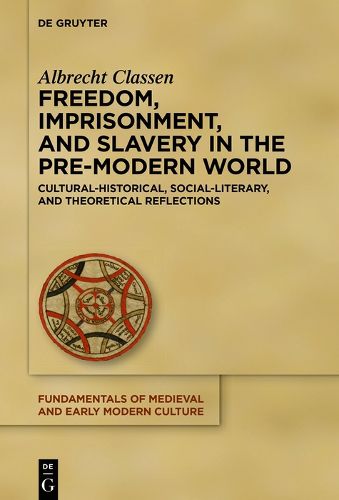Readings Newsletter
Become a Readings Member to make your shopping experience even easier.
Sign in or sign up for free!
You’re not far away from qualifying for FREE standard shipping within Australia
You’ve qualified for FREE standard shipping within Australia
The cart is loading…






Contrary to common assumptions, medieval and early modern writers and poets often addressed the high value of freedom, whether we think of such fable authors as Marie de France or Ulrich Bonerius. Similarly, medieval history knows of numerous struggles by various peoples to maintain their own freedom or political independence. Nevertheless, as this study illustrates, throughout the pre-modern period, the loss of freedom could happen quite easily, affecting high and low (including kings and princes) and there are many literary texts and historical documents that address the problems of imprisonment and even enslavement (Georgius of Hungary, Johann Schiltberger, Hans Ulrich Krafft, etc.). Simultaneously, philosophers and theologians discussed intensively the fundamental question regarding free will (e.g., Augustine) and political freedom (e.g., John of Salisbury). Moreover, quite a large number of major pre-modern poets spent a long time in prison where they composed some of their major works (Boethius, Marco Polo, Charles d'Orleans, Thomas Malory, etc.). This book brings to light a vast range of relevant sources that confirm the existence of this fundamental and impactful discourse on freedom, imprisonment, and enslavement.
$9.00 standard shipping within Australia
FREE standard shipping within Australia for orders over $100.00
Express & International shipping calculated at checkout
Contrary to common assumptions, medieval and early modern writers and poets often addressed the high value of freedom, whether we think of such fable authors as Marie de France or Ulrich Bonerius. Similarly, medieval history knows of numerous struggles by various peoples to maintain their own freedom or political independence. Nevertheless, as this study illustrates, throughout the pre-modern period, the loss of freedom could happen quite easily, affecting high and low (including kings and princes) and there are many literary texts and historical documents that address the problems of imprisonment and even enslavement (Georgius of Hungary, Johann Schiltberger, Hans Ulrich Krafft, etc.). Simultaneously, philosophers and theologians discussed intensively the fundamental question regarding free will (e.g., Augustine) and political freedom (e.g., John of Salisbury). Moreover, quite a large number of major pre-modern poets spent a long time in prison where they composed some of their major works (Boethius, Marco Polo, Charles d'Orleans, Thomas Malory, etc.). This book brings to light a vast range of relevant sources that confirm the existence of this fundamental and impactful discourse on freedom, imprisonment, and enslavement.